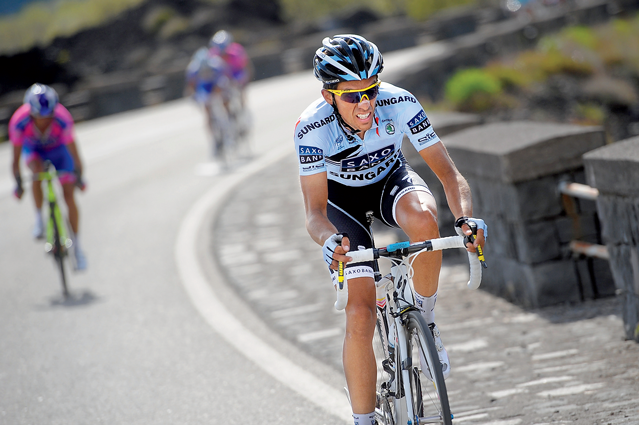If we’ve learned anything from professional cyclists, it’s that cheaters can figure out a way to beat any test. That’s why, about three years ago, the World Anti-Doping Agency began a program it calls the Athlete Biological Passport. Rather than looking for banned substances in urine and blood, the program examines an athlete’s physiological history taken from several tests over the years, zeroing in on specific biomarkers like hemoglobin concentrations and immature-red-blood-cell counts. “If their red-blood-cell count is much higher all of a sudden, that would indicate that they may be on a banned drug like erythropoietin,” or EPO, says Matthew Fedoruk, the science director for the U.S. Anti-Doping Agency. Though the biological passport doesn’t eliminate the need for toxicology testing, it gives testers a better idea of which banned substances they should be looking for. That will come in handy in London, where a team of more than 150 anti-doping scientists will test 400 competitors a day—including every medal winner—around the clock. Will athletes still cheat? Sure. But they’ll have to work a whole lot harder to get away with it. “It’s certainly the largest effort one event has put into ensuring the competition is clean and fair,” says Fedoruk.


